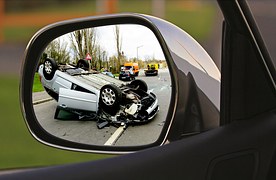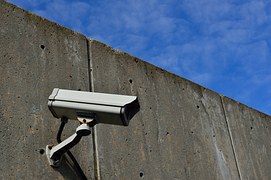Is My Car Accident Captured on Film By A Surveillance Camera?
The factual details surrounding a car accident are obviously important. The sequence of events, the timing, the “how” and “why” of the occurrence determines who is responsible for the accident.
In Maryland, causation looms large because of the role of contributory negligence.
Maryland is not a comparative fault state -where the individual fault of each contributing party is taken into account. Maryland employees the harsh, archaic doctrine of contributory negligence under which even an injured plaintiff that contributed 1% to the happening of an accident is barred forever from recovery, even if badly injured. The factual circumstances, how the accident happened, and who caused it, are therefore critical in assessing the value of a case in terms of its strength on liability, and likelihood of success on the merits.
We can group accidents into some broad categories: As Attorney Eric T. Kirk will tell you.
- the hit and run the
- disappearing motorists
- the phantom vehicle – a close cousin of the hit and run
- accidents involving lane changes
- accidents involving intersections
- accidents involving red lights/green lights and stop signs
- accidents that occur in parking lots
- the head on collision
- the T-Bone collision
- the Sideswipe, and
- the rear end impact
No matter which category of accident your claim falls into, there are some basic, cardinal rules. Because of the role of contributory negligence, convincing the insurance company, initially, to accept 100% responsibility, or proving to a jury in court, ultimately, that the other driver is at fault, is obviously integral to the success of any case. In that regard, some variables can contribute to the success of the claim.
First and foremost among these is the availability of a disinterested, unbiased, third-party independent witness.
Now, there are a lot of adjectives there, but they are all important descriptions of the type of witness that is the most helpful. The ideal witness is disinterested, meaning they have no interest in the outcome of the case, period. They are unbiased, meaning they don’t know, personally, the party that has called them.

They are a third party, meaning that they are not associated with affiliated with the action, or otherwise involved with the party that has called them as the witness. Independent means their testimony is based solely on their own recollection of events and not information provided by, or cultivated by the party that has called them as a witness. As you might imagine, true unbiased, independent, third-party witnesses are rare creatures. It is most often the case that the only witnesses to any accident are the drivers involved in the occurrence. The next most frequent situation is where there are passengers in a vehicle, but often those passengers are friends, relatives or other acquaintances of the drivers. It is in fact the rare case where there is a third-party bystander who just happens to witness the accident, is identified in time so that their contact information has been reported, and then subsequently either gives a statement regarding the occurrence, or appears at trial to give testimony.
Having a disinterested, independent witness on your side does not guarantee success in the case. Insurance claims adjusters have been known to disregard the testimony of witnesses. District court judges have been known to discount the testimony of witnesses that are shown to be disinterested, unbiased, and completely believable. Circuit Court juries have been known to look past the testimony of witnesses. Some have discussed this phenomena as a perceived ability to “see through” the facts, and get to the “truth”. Truth is sometimes not as important as evidence in litigation. To counterbalance that, the evidence is sometimes ignored. Having said that, a contested liability case is certainly much stronger if you have a disinterested witness in your corner.
The plaintiff carries the burden of proving his or her case. That means they must offer something to tilt the scales ever-so-slightly in their favor. They must offer evidence that would support a conclusion that the other side was at fault. In the absence of such proof they are unable to prevail on their claim. An experienced personal injury attorney will assist you in preserving vital evidence for your case. Certainly, recording the names, addresses phone numbers and other contact information of witnesses, preserving that information, obtaining a statement, and ultimately getting the witness into court is a vital role of a personal injury attorney.
Perhaps the ultimate independent witness is the camera.
Increasingly, motor vehicle accidents, particularly those occurring in urban areas, are captured on film or on video. Law enforcement agencies have cameras that monitor many intersections. Private businesses have cameras that indirectly monitor some streets and parking lots. Individual property owners have cameras that monitor streets, parking lots and other residential areas, even if peripherally.

It is of course imperative to act quickly after an accident, so that any such footage that exists may be preserved. This is particularly true when attending or attempting to obtain video footage from a law enforcement agency. Many people assume that because there is some equipment that looks like a camera on a utility pole or assembly that spans an intersection, that there is a camera that records all the events in that intersection. While we may ultimately be in a situation where big brother in fact records everything, we are not there yet. The equipment on assemblies or arrays overhanging an intersection is frequently nothing more than a trigger for light sequencing. Nevertheless diligent and prompt inquiry is required to determine if there is a recording of the accident, and if that recording can be preserved and attendance of a witness with custody of the footage obtained.



